

Book Now to Experience
F8 Hair Regrowth Treatment
1 Minute Self-Registration
Date should not be before minimal date
Author: Leila Tan|Updated: 23 July 2024
Are you looking for ways to help cure your hair loss? If so, you're not alone. Hair loss is a common issue that affects many people, and can be caused by a variety of factors. Luckily, there are several tips and tricks that you can use to help reduce and potentially eliminate your hair loss. In this blog post, we'll discuss five tips to help you cure your hair loss along with our hair loss treatment from New Beauty.

1
Introduction to Hair Loss
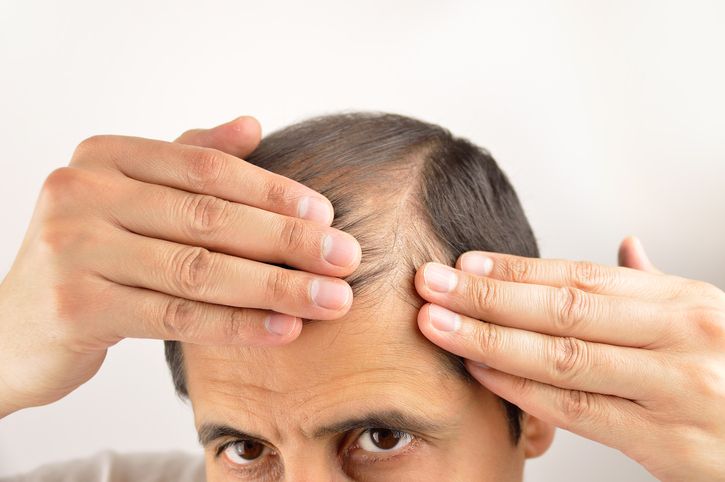
Hair or hereditary hair loss is a common condition that affects both men and women. For men this hair loss is known as male pattern hair loss, while for women it is known as female pattern hair loss. This can be caused by a variety of factors, including genetics, hormones, medications, and medical conditions. Hair loss can occur gradually or suddenly, and it can be temporary or permanent. Losing hair can have a significant impact on a person's self-esteem and confidence, which is why finding effective treatments is important.


2
Causes of Hair Loss
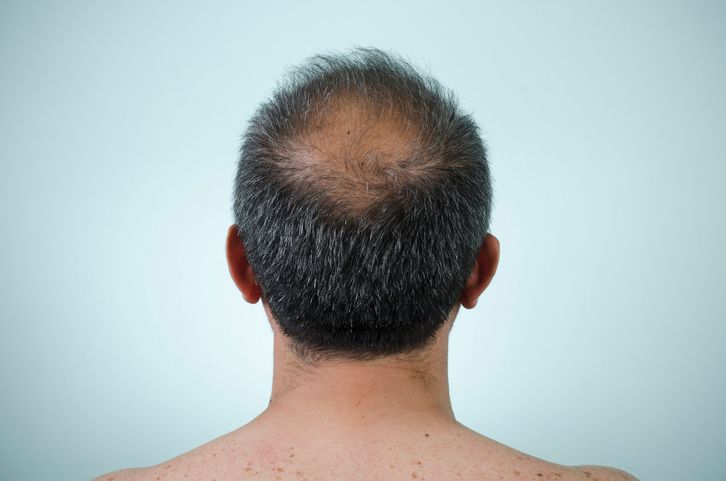
Hair loss occurs as a result of many reasons and one of them is genetics. If you have a family history of hair loss, you are more likely to experience it yourself. Hormonal changes can also lead to temporary hair loss too, such as those that occur during pregnancy or menopause. Certain medications, such as chemotherapy drugs, can cause hair loss as a side effect. Medical conditions such as thyroid problems and autoimmune disorders can also contribute to hair loss.
Read More

3
Understanding the Hair Growth Cycle
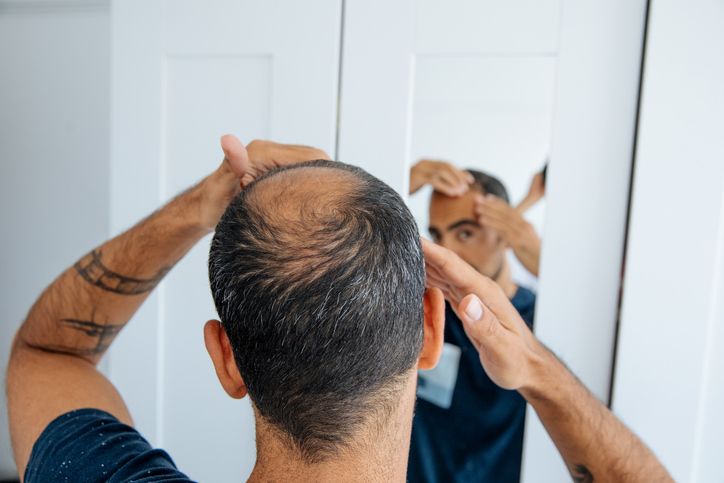
Before discussing natural remedies for hair loss, it's important to understand the hair growth cycle. Hair growth occurs in three stages: the anagen phase, the catagen phase, and the telogen phase. The anagen phase is the active growth phase, during which hair follicles produce new hair cells. The catagen phase is a transition phase, during which the hair follicles shrink and detach from the blood supply. The telogen phase is the resting phase, during which the hair follicles remain dormant. At the end of this phase, the old hair falls out and new hair begins to grow.
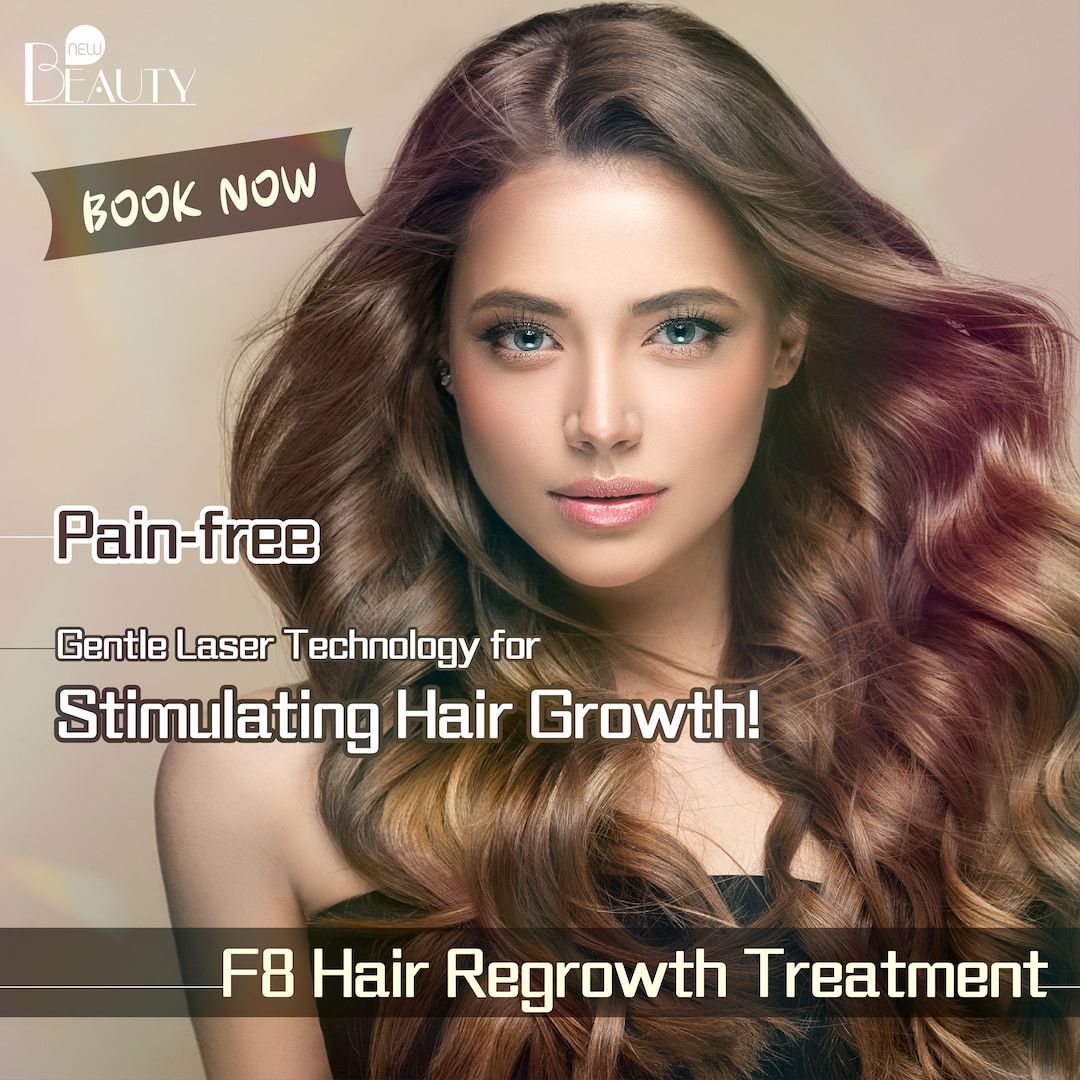

4
Identify the causes of hair loss
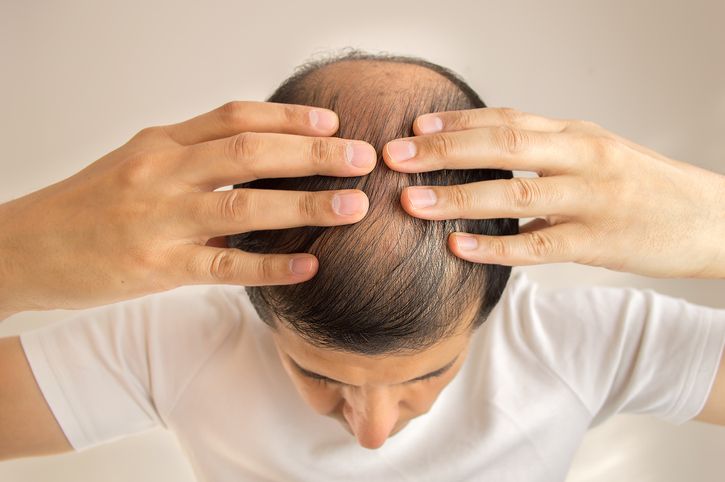
Identifying the cause of your hair loss is the first step in curing it. Many people experience temporary or permanent hair loss at different stages of their lives for a variety of reasons. Common hair loss causes can range from genetics, hormones, medical conditions, diet and nutrition deficiencies, certain hairstyles, and medications. It’s important to pinpoint the exact cause of your hair loss so you can take the necessary steps to treat it.
If you’re experiencing hair loss, it’s important to look at your lifestyle and determine if any changes need to be made in order to prevent further hair loss. For example, hairstyles that pull too tightly on your scalp can lead to traction alopecia and ultimately cause permanent hair loss. Additionally, some hairstyles, like tight ponytails and cornrows, can put too much stress on your scalp and damage your hair follicles. If you’re wearing any of these styles, consider changing your hairstyle in order to reduce the tension on your scalp.
If you’re experiencing hair loss due to genetics, there are certain hairstyles that can help conceal it. Consider getting a short haircut with layers or bangs to help hide any thinning patches on your scalp. In addition, stay away from styles that require heat or chemicals such as blow-drying and perms, which can damage your hair follicles. By taking the time to identify the cause of your hair loss, you can begin to take the appropriate steps to help treat and potentially reverse it. Doing research and consulting with a professional can help you get the information and treatment you need.

Book Now to Experience
F8 Hair Regrowth Treatment
1 Minute Self-Registration
Date should not be before minimal date

5
Treatments for hair loss
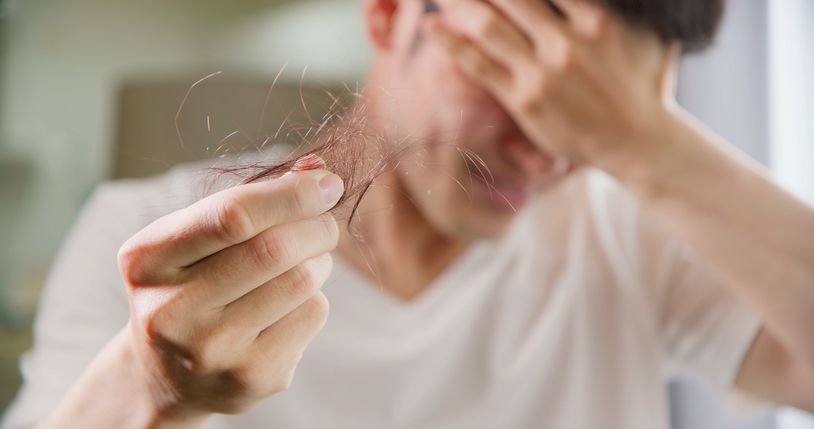
Hair loss treatments vary depending on the type and severity of the hair loss. For some people, hair loss may be reversible, while for others it is not. In any case, treatments usually involve lifestyle changes and medications to promote hair growth and prevent further hair loss.
Medications
Medications such as minoxidil (Rogaine) can be prescribed to promote hair growth. Generally, the medication is applied topically and is used twice a day. Possible side effects include itching and dryness of the scalp.
Hair transplants
Hair transplants involve taking hairs from the back or sides of the head and transplanting them to bald spots on the scalp. This can be an effective treatment for hair loss, and the results can be long-lasting. However, the procedure is expensive and can be painful.
Laser therapy
Low-level laser therapy is a drug-free treatment that may help stimulate hair growth in some cases. The laser light is usually directed at the scalp, and the treatment can be done at home or in a doctor’s office.
It is important to consult a healthcare provider before starting any hair loss treatment to discuss the risks and benefits. A doctor may also be able to recommend alternative treatments if the treatments listed above are not effective.


6
F8 Hair Regrowth Treatment - New Beauty
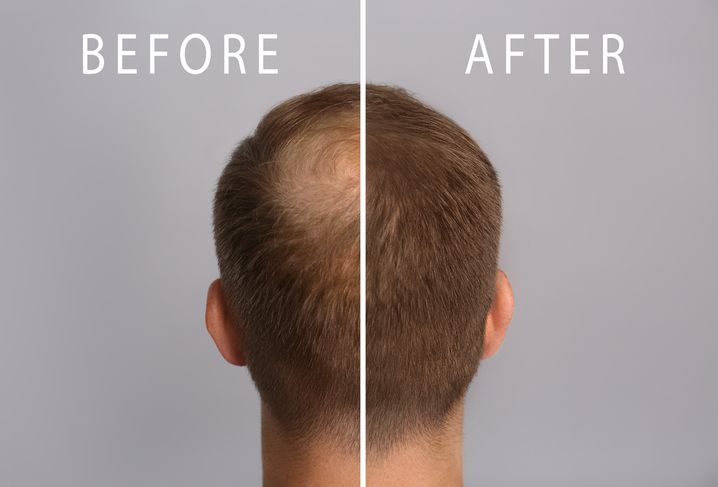
F8 is a non-invasive procedure that promotes the health of the hair and scalp. A hair development serum with low laser energy sweeps across the scalp to activate dormant hair follicles and fortify the hair papilla. The healing of the capillaries and promotion of their microcirculation by the energy and serum also aids in supplying nutrients that energize the hair follicles. You will notice an improvement in hair volume and quality after the treatment.
F8 Hair Regrowth Treatment - How does this treatment work?
Step 1: The client's hair loss condition is investigated by a professional hair expert. The professional uses a 200-fold magnification to assess the health of the scalp and hair follicles. The specialist then verifies the client's hair loss degree and affected locations. The aesthetic therapist then goes into great detail about F8's idea and process. The low-energy laser will also be tested on a patch by the therapist.
Step 2: The therapist distributes low-energy lasers across the scalp using the device's handpiece. It's not surgery in this step. The hair papilla and hair follicles inside are stimulated. Additionally, the capillaries in the area get stronger, allowing for a proper microcirculation of nutrients. The end effect is a scalp and hair follicles that feel healthier.
Step 3: After the low-energy lasers are released, the therapist uniformly spreads the top hair growth serum over the scalp. Simple serum absorption is made possible by laser radiation. The hair growth serum cleans the scalp, clears the pores, and moisturizes the scalp, which reduces sebum production and creates a favorable environment for hair growth with a balanced water-oil ratio. The method promotes hair growth.
F8 Hair Regrowth Treatment - Benefits of this treatment
Non-Invasive: F8 is a very safe, non-invasive method of treating hair loss. The scalp skin is evenly covered by the soft laser energy.
Increasing Blood Flow: Hair papilla, capillaries, and hair follicles can all be strengthened by the F8 low-energy laser.
Scalp Care: A hair growth serum injection can deep-cleanse the scalp to lessen sebum production and can also unblock hair follicles to improve scalp health.
For Both Ladies and Gentlemen: For both women and men with hair and scalp issues, F8 is a very safe hair and scalp therapy.
Read More

7
Evaluate any nutritional deficiencies
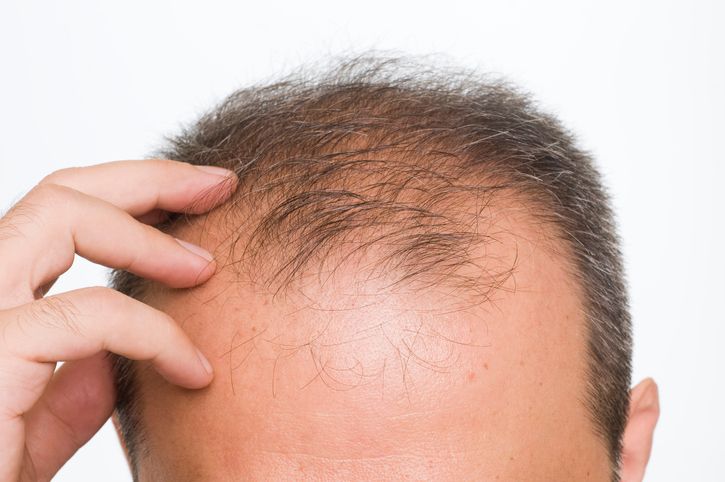
When it comes to hair loss causes, nutritional deficiencies can play a big role in the process. In order to address your hair loss, you must first look at what your body is lacking. Certain nutrients are essential for healthy hair growth, such as omega-3 fatty acids, zinc, iron, and B vitamins. If you are deficient in any of these, it could be contributing to your hair loss.
To check for nutritional deficiencies, it’s best to visit your doctor for blood work. They will be able to provide a complete picture of your overall health and identify any nutrient deficiencies. You may also want to talk to a dietitian or nutritionist to learn more about which foods can help address your deficiency and promote healthier hair growth. It’s important to address nutritional deficiencies before they become more serious, as they can affect all stages of hair loss. If caught early, you may be able to restore your hair and find the right hairstyles for hair loss that suit you.


8
Vitamins for Hair Growth
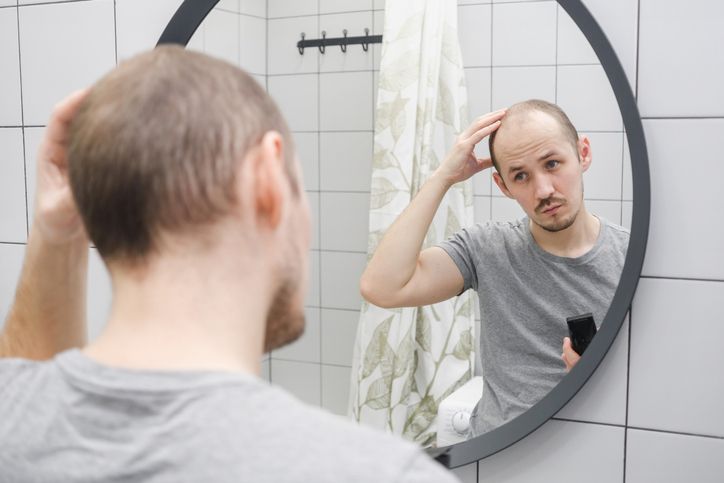
Vitamins play an important role in promoting healthy hair growth. Vitamin A helps to produce sebum, which moisturizes the scalp and keeps hair healthy.
Vitamin C is an antioxidant that helps to protect hair cells from damage. It is said to create collagen, which has amino acids that can be used to create keratin, a crucial component of hair structure. Vitamin C also helps in guarding against oxidative stress, which has been associated with hair loss, in the hair.
Vitamin D is important for hair follicle cycling and growth. Ask a medical expert if you could benefit from a vitamin D supplement because the majority of people probably don't get enough vitamin D through diet alone.
Biotin is a B vitamin that is essential for hair growth and helps to prevent hair loss. Even though biotin is one of the most well-liked supplements for hair, skin, and nails, there isn't much evidence to back up its advantages for those who get enough biotin in their diets. Research on the effectiveness of folate and vitamin B12 for promoting hair growth in those with appropriate intakes is also equivocal.

Book Now to Experience
F8 Hair Regrowth Treatment
1 Minute Self-Registration
Date should not be before minimal date

9
Onion Juice for Hair Regrowth
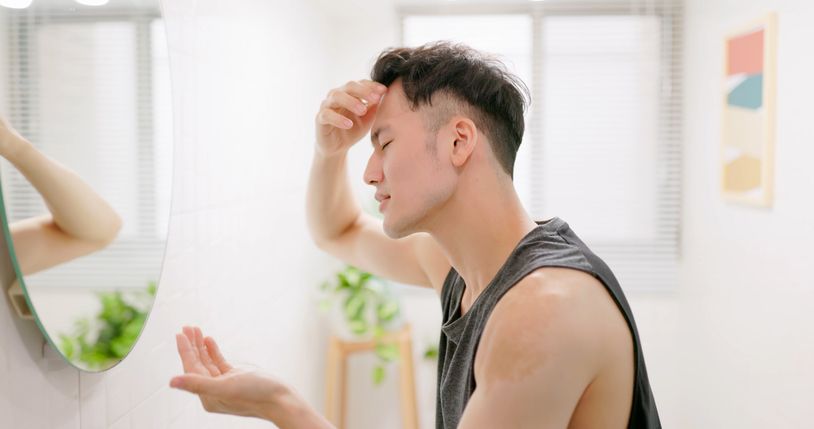
Onion juice has been shown to be an effective natural remedy for hair loss. It contains sulfur, which helps to promote collagen production and improve blood circulation to the hair follicles. For stimulating hair growth you can try using onion juice by simply blend an onion and strain the juice. Massage the juice into your scalp and leave it on for 15-30 minutes before washing it off with shampoo.
According to a study by the Journal of Dermatology on alopecia areata, raw onion juice can promote hair growth. One group of the 38 participants in the sample group (male and female) applied raw onion juice to their hair, whereas the other group rinsed their hair with normal tap water. 23 people who used onion juice had much better hair and scalp quality, it was discovered. Additionally, it was recognised that men were probably going to benefit more than women.


10
Lifestyle Changes for Healthy Hair Growth
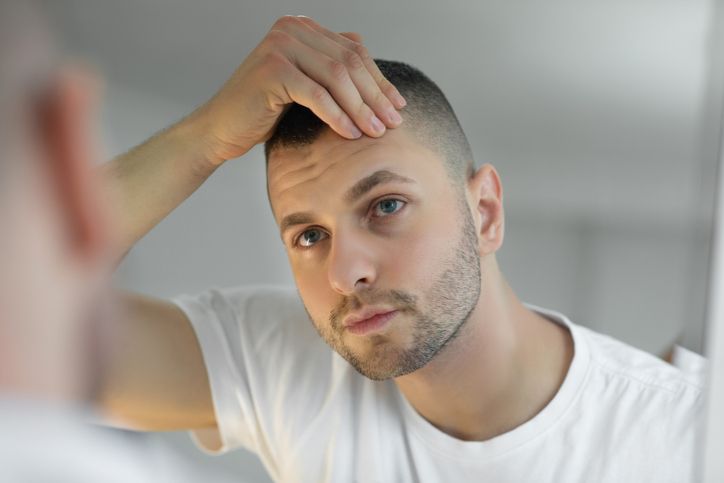
Making lifestyle changes can also help to promote healthy hair growth. Eating a balanced diet that is rich in vitamins and minerals can help to keep your hair healthy. Avoiding harsh chemicals and heat styling tools can also help to prevent damage to your hair. Getting enough sleep and managing stress can also help to promote healthy hair growth.

11
How can hair loss be prevented?
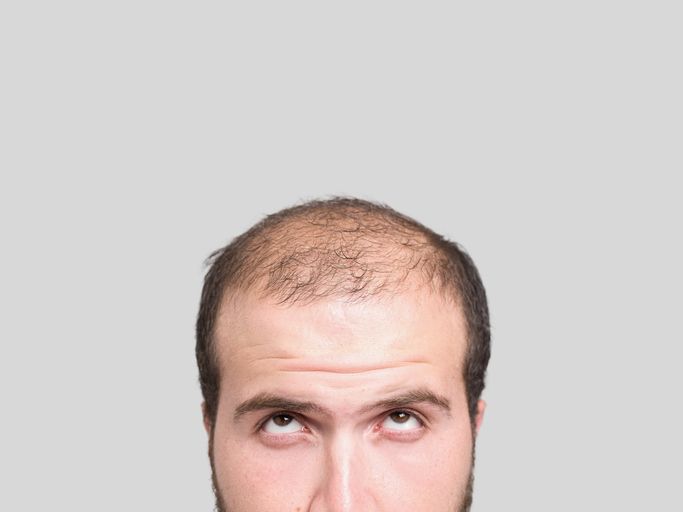
The best way to prevent hair loss is to maintain a healthy lifestyle. This includes avoiding stressful situations, getting enough sleep, and eating a balanced diet. It is also important to use gentle hair care products and avoid over-styling.
In addition, certain supplements may help with hair loss. These supplements often contain vitamins and minerals that are necessary for healthy hair growth. Some popular supplements for hair loss that may be beneficial include biotin, iron, zinc, and omega-3 fatty acids.
If you're concerned about your hair loss, it is important to consult a doctor for proper diagnosis and treatment of sudden hair loss. A doctor may be able to suggest medications or alternative treatments to help slow or even reverse the effects of hair loss.


12
Conclusion
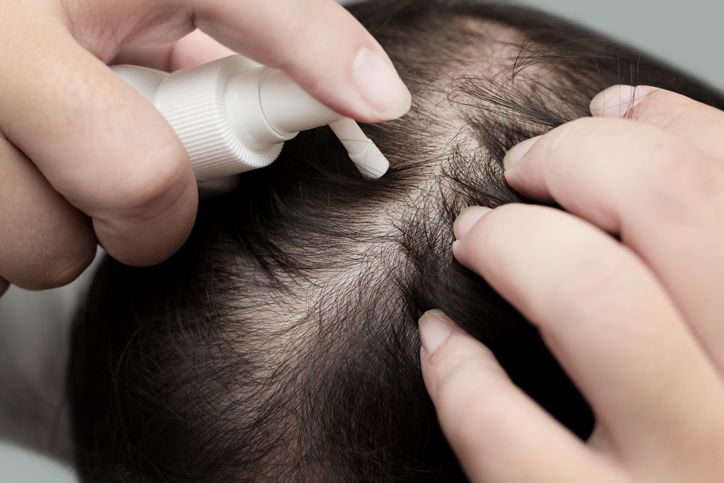
Thinning hair can be frustrating and demoralizing, but there are natural remedies that can help promote hair growth and prevent hair loss. Vitamins, onion juice, and lifestyle changes can all contribute to healthy hair growth. It's important to be patient and consistent with your treatments, and to talk to your doctor if you have noticed any patchy hair loss. With the right approach, it is possible to not lose hair and say goodbye to hair loss and hello to healthy, beautiful hair.
Many people find it helpful to reach out to online communities and support groups to connect with others who are experiencing similar issues. Everyone’s experience with hair loss is different, and it can be helpful to exchange stories, tips, and encouragement with like-minded individuals. Ultimately, understanding the causes and available treatments for hair loss can help individuals make informed decisions about the best course of action for their particular situation.
FAQ
Does doing any kind of movement can help with hair loss?
Sometimes mental health can affect your physical health. Keeping a good mental health can help to reduce stress and can work as a good hair fall treatment. You may consider doing yoga as it is known to help with hair growth.
Does hair loss last more than a year?
The hair usually returns to its natural fullness within six to nine months. If the stressor persists with you, though, hair shedding might be long lived. People who are always under a lot of stress can have long-term significant hair loss.
Can natural remedies work for everyone?
Natural remedies may not work for everyone, as the effectiveness of these treatments can vary depending on the cause and type of hair loss itself.

Book Now to Experience
F8 Hair Regrowth Treatment
1 Minute Self-Registration
Date should not be before minimal date
Recommended Articles
COPYRIGHT© NEW BEAUTY MANAGEMENT LIMITED 2026. ALL RIGHT RESERVED.




